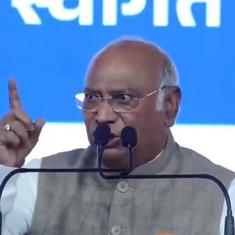India Inc has seen many corporate battles among prominent business families. For instance, there was the tussle between Mukesh Ambani and Anil Ambani, between Rahul Bajaj and his brothers and sons and the feuds in the Ranbaxy and Apollo Tyres families, to name a few.
The big corporate fight last year, between Cyrus Mistry and the Tata Group was unique because it pitted the conglomerate’s then CEO and minority shareholder against its majority shareholder, Tata Sons and its patriarch, Ratan Tata.
With the recent fracas between its founders and the management, tech giant Infosys joins this unenviable list of Indian companies that have fought their ugly battles in the public eye.
Hallmark of corporate governance
Infosys is among India’s most celebrated corporate stories – one that began in 1981 with seven engineers and just $250. From there, its founders, NR Narayana Murthy, Nandan Nilekani, S Gopalakrishnan, SD Shibulal, K Dinesh, NS Raghavan, and Ashok Arora, made Infosys one of India’s biggest software giants. Today its market capitalisation stands at Rs 2.25 lakh crores (or $32 billion) ranking it as the sixth-largest company in the country.
Along the way, Infosys defined the best practices of corporate governance.
Corporate governance is a set of rules that define how a company is controlled and directed. It balances the interests of its various stakeholders. For instance, if a greedy promoter or owner wants to enter into a transaction with the sole purpose of benefiting his family and himself, the independent directors on the company’s board should block the transaction in the interests of minority shareholders.
Companies’ annual reports serve as a good illustration of how corporate governance works. More disclosures, especially those not required by law, usually means good corporate governance. Infosys’s 1999 report had dedicated sections on corporate governance as well as management discussion and analysis at a time when these concepts were not as widely known and discussed. The company’s high standards of corporate governance were largely credited to its founder fathers, led by Murthy.
Old vs new
In 2014, Insosys’ founders gave up active control of the company, paving the way for a new CEO, Vishal Sikka. While the founders own about 13% of Infosys, they relinquished control of company’s future to Sikka, who leads the tech giant’s board of directors.
But the honeymoon lasted less than three years. Murthy, in recent weeks, raised serious issues about the way Infosys was being managed. In particular, he spoke about the high severance packages to former employees, the reappointment of Sikka as CEO and his remuneration and the appointment of independent directors who seemed to have a conflict of interest.
In an interview to the Economic Times last week, Murthy was vocal about what he perceived as the fall in standards of corporate governance at the company and did not mince words. Sample this quote from the interview:
“Providing huge severance pay (with 100% variable) to some departing employees while giving only 80% variable for employees in the company is one such example. Such payments raise doubts whether the company is using such payments as hush money to hide something.”
For the dust to settle
While the Infosys battle is far from being settled, there is no evidence still of wrongdoing by the company management under Sikka. The decisions regarding severance pay, for instance, that Murthy spoke of in the interview, were approved by shareholders. As Infosys said in a statement on February 9, “While there could be differences in views on these matters [severance pay, CEO compensation and appointment of certain independent directors] , they have been overwhelmingly approved by shareholders, wherever required, and on which due disclosures have been made.”
Oppenheimer, a large institutional investor that owns shares in Infosys, also backed Sikka in an open letter that said:
“The bottom line is that, in our opinion, Dr Sikka has achieved much in his tenure as the first non-founder Chief Executive Officer. After many years of internal volatility and competitive underperformance, it is encouraging to see that Vishal has stabilized the core and articulated a clear – and appropriate – long-term strategy to help Infosys thrive amidst industry disruption.”
Business battles eventually get resolved and families, owners, founders and the management find a way to move on. After all, their fortunes are linked to those of the company, which in turn cannot prosper when its owners’ attention is diverted in battle.
So, while the Ambanis and Bajajs split their businesses and moved on, Ranbaxy was eventually sold to Sun Pharma and Apollo Tyres continued to grow strong and is one of India’s largest tyre companies today. The Tatas, too, managed to put the spat over Mistry’s ouster behind and found a new chairman in N Chandrasekaran, a long-timer in the group.
However, the public feud has particularly hurt Infosys given its stellar track record on corporate governance. Murthy’s allegations about “hush money”, though currently unproven, indicate that the company’s standards of disclosure leave room for improvement. Only if Sikka bridges this gap will the company truly be able to leave this sordid chapter behind.
Anupam Gupta is a chartered accountant and has worked in equity research since 1999, first as an analyst and now as a consultant. His Twitter handle is @b50.









